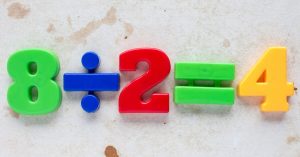Public or Private School: What’s Best for Your Child?

Which is better, public or private school? Almost every parent asks this question at some point. But not all of them understand it.
The truth is, neither option is right for every child. For that matter, no two public or private schools are the same. They all offer different education styles, environments, and curriculums.
To help you decide, though, we’ve compiled a list of all the factors you must consider. We start by explaining the best features of public vs private schools. And we close by letting you know which features to look for in the schools you’re considering.
Ready to learn more? Read on to find out what you need to know.
Pros Of Public Schools
Like many people, you may automatically assume that public school’s inferior simply because it’s free. So, first, let’s dispel this rumor and consider why public school is sometimes the best option.
It’s Free
Obviously, the biggest reason to choose public schooling is that it’s free. Additionally, low-income families are entitled to extra assistance, such as free meals for students.
Diversity Is Required By Law
Next, public schools are required by law to accept every student, regardless of:
- Race
- Ancestry
- Religion
- Gender
- Sexual orientation/identity
- Nepotism
- Etc.
This is a major difference between public and private schools. Since private schools are privately owned, they can discriminate as much as they want. That’s why you often see private schools that are exclusively female, African-American, or Christian.
There’s Social Diversity, Too
Because of the required diversity at public schools, students are educated in a more realistic environment. They become accustomed to diversity, as they should. Conversely, a more “sheltered” educational environment can make it difficult when students transition into adulthood.
Parent Influence
At a public school, you can join the PTA, cast your vote, and affect school policies. Private schools don’t necessarily allow this.
Pros of Private Schools
There are misconceptions about private schooling, too. Namely, spending money on schooling doesn’t guarantee academic success.
Still, there are many inherent benefits of private schooling. Let’s take a look.
You Can Get Scholarships
It might not be as expensive as you think to enroll in a private school. Check if there are any scholarships available.
Smaller Classes
There are usually fewer students per class at private schools. This means that each student gets more individual attention.
Unique Teaching Philosophies
Perhaps you want a less diverse educational environment. For instance, if you’re Christian, you may prefer that your child gets a Christian education.
Similarly, private schools needn’t follow “common core” guidelines. On the contrary: they take pride in their unique teaching styles.
Unique Classes and Other Features
Each private school offers loads of unique classes, assistance programs, and other optional features that other schools don’t. You can see a really good example of this at oakhillacademy.org.
What to Look For in a Public or Private School
First, know your child, specifically his/her unique needs. Make a list of these needs and find out how his/her potential school can fulfill them.
Next, look at reviews online. Check these reviews and other resources for specific information about the school, including:
- School-to-parent communication
- Average student testing scores
- Bullying/prejudice
- Assistance programs
- Electives and extracurricular activities
Through this research, you should gain enough information to make your choice.
Public vs Private School: Which Will You Choose?
Now that you know your options, will you choose a public or private school for your child? If you need more time to decide, that’s okay. Just make sure you bookmark this page in case you need to refer to it again.
Next, learn about choosing a preschool, teaching struggling children to read, and more. Find these and other tips on how to educate your child in our Education archives.








